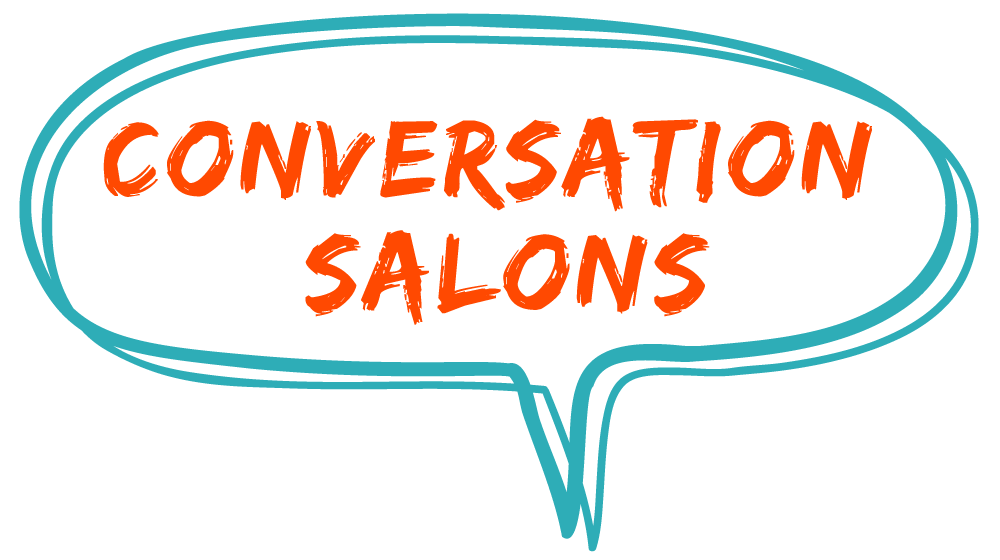
By Conor McCormick
Thanks to technological advances, conversation has become as effortless as breathing but is it still engaging? The mediums are varied; chatting over a coffee, text, email, video chat right through to a 10 second message that deletes after opening. Each medium suits a scenario, the information being conveyed and the user. You read a text when it arrives but depending on the nature of the message and who it’s from, your response time will vary. Unopened messages can sit in your inbox creating anxiety to respond and similar feelings for the sender who has no idea why you haven’t, was it something I said? When would you do this in regular conversation? Thanks to this period of lockdown and current reliance on digital forms of communication, it raises the question, has the value of the conversation been affected?
BEING UNCOMFORTABLE WITH BOREDOM
We have become uncomfortable with boredom. The internet has ‘cured’ boredom. Remember that feeling of pure unadulterated boredom from being at an elderly relatives when you were a kid? Where 10 minutes felt like an hour. When was the last time you felt that? Presumably the last time you had to commute when your phone was dead. Where boredom forces your mind to create a stimulus. This may come in the form of thinking about a creative solution to a problem you’re having or simply daydreaming. We’ve always done things to cure boredom such as playing games, writing stories or watching TV but we are getting less creative in how we do it. Messaging can be just another way to avoid existential dread. This existential dread is reality.
EXPLORING NOVELTY
Our reality has been turned upside down with COVID-19. This period of isolation has emphasised our need for ‘entertainment’. When COVID-19 began, digital conversation went through the roof. Instead of gathering in pubs on a Saturday night, groups would organise zoom calls from the comfort of their living room. This was fun! We love a novelty, but novelties, along with the freshness of new shoes, wears off quickly. It was apparent that this was a filler, a way to alleviate boredom. I was having social calls with work mates, 10 of us in a busy video chat room, each person speaking in turn with the attention of the other 9 solely on them. An unnatural way to approach conversation but as organic as possible given the restrictions. I found that the subject matter within conversations was being drawn out, much more than in person. As if we were all avoiding the reality of going back to whatever we did outside of this virtual world. You are still conscious of being the first person to leave and wanting to leave in a small group to take off the heat. You are still aware that you may be missing out if you leave the party early.
It’s likely that now, more so than ever, you’ve been in contact with friends whom you haven’t spoken to in months, maybe years. Is this because you have more ‘time’? Or because you’re bored? Time cannot be the reason because you make time for the things you want. ‘I don’t have time’ is the biggest self deception tactic we have in our cognitive arsenal. I am open to the idea you may care about their well-being and them yours BUT most likely you are killing boredom or helping someone else kill theirs. If you are going to ‘make’ the time for someone, you may as well put the effort into the conversation.
GETTING MORE OUT OF CONVERSATION
Using conversation as a way of alleviating boredom isn’t new. Since the time of cavemen, we were scoring symbols onto rocks and grunting for communication. Conversation could still be fun. Now, we are simply doing it through a different medium but we are much more prone to use it to eradicate boredom.
As the world has ground to a halt removing the fun topics of holidays and work drama, it can require effort to find shared ground with our peers. Like all things that require work, we often take the easy option. We can view relationships that require work in a negative light as they seem unnatural or forced. Would you think in a similar way about changing your body through dieting or exercise? “I shouldn’t need to watch my calories if that’s not what I want, I shouldn’t force what doesn’t feel natural.” I mention this because the old friends that reach out sporadically will have a list of archived events to fill you in on? Just because it’s fresh doesn’t mean it’s worthy of your full attention. Maintaining a strong friendship requires work, like any good relationship, so decide on what friendships you want to nurture and put the work into them, being conscious you aren’t putting effort into something purely because it’s new.
If you’re willing to admit that valuable conversation requires work, then getting past the barrier of superficial topics is vital. This is what’s missing from video based group platforms. We frequently use the classic opener of “how are you?’ to get a conversation flowing but I would argue it is seldomly answered honestly. Partly because it’s a segue to getting to the real guts of a conversation but also because we don’t want to appear whiney or conversely, boastful about good fortune. Similarly, the rigidness of conversation becomes painfully obvious when we avoid emotions.
EXPLORING VULNERABILITY
Being isolated with my housemates during this has highlighted frustration and the importance of vulnerability. Going about your daily affairs can create a level of distraction where signs of frustration can slip through the cracks. With a simplified routine you start to recognise irregular patterns in behaviour and sense when something is off. People will still deny all notions of a problem. Why is it so difficult to be open about our struggles? This is something we need to become comfortable with proding friends about when we catch up. Text can be an easy way to talk about sensitive topics without ever going through the awkwardness of face to face. Unfortunately, this reliance on technology is breeding out a vital life skill. How else can you develop your awareness of empathy and calibrate how your actions affect others if you don’t see the real time impact? You need to go through feelings of discomfort.
When using a medium such as zoom, genuine connections are far less likely to happen, who wants to discuss a personal topic when they are in the spotlight in front of a group? I have a daily Zoom meeting with my colleagues and have seen a huge shift in real interaction as the months have progressed. Initially, everyone had cameras on, microphones open and the conversation was jovial. Some chose to stay in the background with cameras off, only responding when spoken to but as is the nature of regular conversation. As time progressed and the novelty wore thin, more and more people became silent black tiles known only by name. It could be argued this happened because we had less interesting common ground to talk about, our bond over work was diminishing as we weren’t sharing the difficulty and success of a regular routine together. Amazing how the warmth suddenly disappears and you stop connecting with people once these elements are removed. What happens when this just becomes text?
CONCLUSION
Ultimately,you’re an adult and in complete control of who you chose to talk to and how. Be conscious of how the tone of someone’s voice conveys subtle nuances that is integral to understanding what they mean. How is enhanced when we can SEE their reactions. Be aware of how important it is to listen to who you’re talking to? Actually listen! Care about what they have to say instead of simply waiting for your turn to speak? We guard our words through insecurity, guilt or embarrassment. Maybe we’re embellishing stories to seem more interesting. When you really know a person, you can derive a lot from their mannerisms which you experience and use this to extrapolate unspoken information. This is how we can tell something is awry, even through a text. When you don’t know a person, you’re using your own subjective interpretation to read between the lines and more likely to draw false conclusions.
Like anything, do with your time what you feel best suits your needs but I would implore that you examine why you are having conversations. Become a conscious participant in your conversations with others and decide what medium will be of most benefit to your relationship.
Read More: Conversations In A Polarised World
Read More: Curiosity Is Crucial
